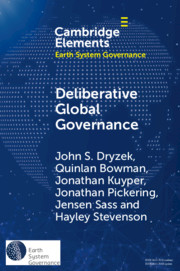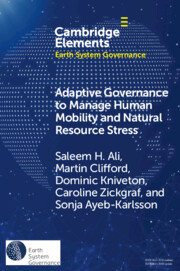Deliberative Global Governance
Global institutions are afflicted by severe democratic deficits, while many of the major problems facing the world remain intractable. Against this backdrop, we develop a deliberative approach that puts effective, inclusive, and transformative communication at the heart of global governance. Multilateral negotiations, international organizations and regimes, governance networks, and scientific assessments can be rendered more deliberative and democratic. More thoroughgoing transformations could involve citizens' assemblies, nested forums, transnational mini-publics, crowdsourcing, and a global dissent channel. The deliberative role of global civil society is vital. We show how different institutional and civil society elements can be linked to good effect in a global deliberative system. The capacity of deliberative institutions to revise their own structures and processes means that deliberative global governance is not just a framework but also a reconstructive learning process. A deliberative approach can advance democratic legitimacy and yield progress on global problems such as climate change, violent conflict and poverty.
Product details
July 2019Paperback
9781108732369
75 pages
230 × 153 × 4 mm
0.18kg
Available
Table of Contents
- 1. Introduction: in search of global democracy
- 2. Why deliberative global governance?
- 3. Making existing institutions and practices more deliberative
- 4. Establishing new institutions
- 5. Cultivating deliberative civil society
- 6. Putting it all together: a global deliberative system
- 7. Reflexivity and reconstruction
- 8. Confronting challenges
- 9. Conclusion.








